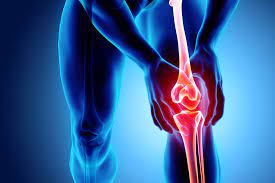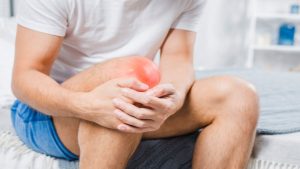
Can Taking Alcohol Cause or Worsen Your Joint Pain?
Alcohol use, be it heavy or moderate, can lead to and even worsen existing joint pain. It diminishes nutrients and water in the body, which leads to a hangover. Alcohol can also combine with certain drugs leading to a dangerous interaction or decreasing their efficacy. It increases inflammation in the body and represses your immune system, all of which can aggravate joint pain. Constant alcohol use can deteriorate existing health conditions, leading to joint pain such as different kinds of arthritis, gout, and fibromyalgia.
Whenever you take a drink, you may not be thinking about how it can affect your knees and joints the next day. For anyone with or without preexisting joint problems, alcohol abuse or moderate alcohol consumption can affect it.
A person’s lifestyle and diet can affect the seriousness of their joint pain, especially if there are patterns of alcohol abuse involved. Alcohol abuse can have complex effects on joint pain, and this is also dependent on several factors. In most situations, a chemical or an element in the alcohol may prompt a reaction in an individual that produces pain. It can also diminish one’s health, making it more challenging to deal with their medical conditions or care for themselves. Even a tiny amount of alcohol can lead to unfavorable health effects for people who are very susceptible to it. Heavy alcohol consumption can reduce one’s bone density, which increases the risk of fracture and complicates arthritis.
Some diseases and illnesses that result in inflammation, swelling, tenderness, and joint pain can be amplified by alcohol use. They include:
 Rheumatoid Arthritis (RA) and other types of arthritis
Rheumatoid Arthritis (RA) and other types of arthritis- Some musculoskeletal conditions
- Osteoarthritis
- Gout
- Fibromyalgia
- Lupus
- Celiac disease
Some of these health conditions, such as RA, Lupus, and Celiac, are autoimmune illnesses. The body starts attacking itself as the immune system attacks healthy tissue instead of illness-causing foreign bodies. As mentioned before, alcohol depresses the immune system, worsening some of these conditions, but some of the individual constituents of the drink can also make symptoms worse. It is assumed that the gluten from grain-based alcoholic drinks like most vodkas and beer prompts joint flare-ups and pain for people suffering from RA, lupus, and celiac disease. Gout is caused by beverages rich in purine like beer, but wine and liquor can also generate the same effect. Prolonged and frequent alcohol consumption increases the risk of one developing gout and also causes crippling feelings of pain when one develops the condition.
So is it possible to take alcohol if you suffer from these diseases? You will have to speak to your doctor and also listen to your body. Having a single drink with one’s dinner will not generate any new symptoms or substantial modifications in pain. However, it would be best to be careful as alcohol has been connected to other illnesses.
Bone Death
 Alcohol is also known to increase the risk for bone tissue death caused by a shortage of blood supply. This condition is also called avascular necrosis or osteonecrosis. It can cause tiny breaks in one’s bone tissue, eventually leading to bone collapse. Bone death affects people at a moderately young age (primarily ages 30 to 60) when social drinking is frequent.
Alcohol is also known to increase the risk for bone tissue death caused by a shortage of blood supply. This condition is also called avascular necrosis or osteonecrosis. It can cause tiny breaks in one’s bone tissue, eventually leading to bone collapse. Bone death affects people at a moderately young age (primarily ages 30 to 60) when social drinking is frequent.
How does alcohol increase the risk of bone death? Taking a few alcoholic beverages daily for a few years can also lead to fatty deposits in the blood vessels. The fat deposits can obstruct the blood from going to particular regions of the bone tissue resulting in their death.
How Alcohol Causes Joint Pain
Consumption of alcohol can generate multiple circumstances that aggravate or trigger pain as follows:
 Weight gain: Alcohol has lots of empty calories and carbohydrates, resulting in weight gain over time, placing additional stress on one’s joints.
Weight gain: Alcohol has lots of empty calories and carbohydrates, resulting in weight gain over time, placing additional stress on one’s joints.- Poor sleep: Alcohol affects one’s quality of sleep leading to fatigue, which can intensify the pain. The body needs time to rejuvenate and repair itself, and without rest, the body cannot heal itself effectively from any damage it has suffered.
- Drug interactions: Some painkillers are not supposed to be mixed with alcohol, so some people can skip their doses to drink. This can make their pain even more intense.
- Diet: Most people are more likely to take junk food when under the influence than when sober. Junk foods can be full of saturated fats, sugar, and refined carbohydrates, all of which have been noted to increase inflammation.
- A delay in the healing process: Alcohol directly slows down your body’s capacity to heal itself while suppressing one’s immune system. This can make you more vulnerable to new health conditions and worsen existing ones.
- Dehydration: Alcohol dehydrates the body critically, and the joints require sufficient hydration for them to keep off inflammation and stay lubricated.
- Drunken behaviors: Alcohol lowers a person’s inhibitions making them more prone to engaging in unsafe behaviors. In such a state, one can do things that can stress the body, such as playing contact sports without appropriate equipment or jumping from a considerable height.
Taking Alcohol to Decrease Pain and Inflammation
No amount of alcohol is deemed safe for pain treatment as even a moderate amount can still pose risks to one’s health.
If you already suffer from a health condition that causes joint pain, taking alcohol will only worsen it. Even though alcohol may seem to reduce or numb the pain short term, it is only a temporary fix. Self-medicating with alcohol only hides the symptoms, and it can cause severe and long-term damage.